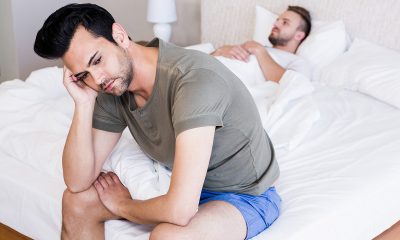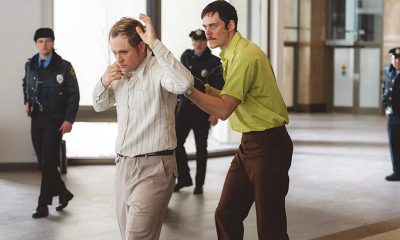a&e features
Why do so many gay couples open up their relationships?
Many of us are on autopilot, but we can build more meaningful connections
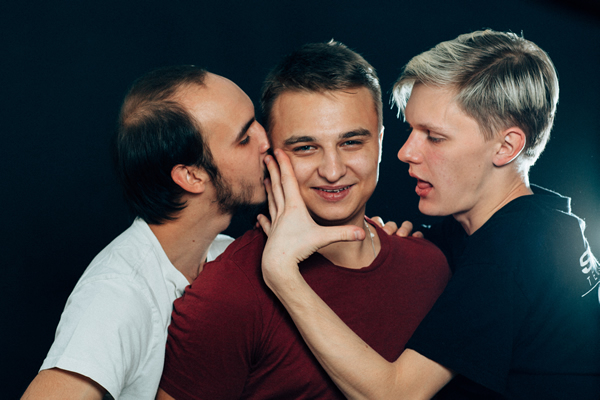
As gay men, we’ve been through a lot.
For so many years we were deep in the closet, fearful of being arrested, and threatened with pseudo-medical cures.
Then came the Stonewall uprising, the declassification of homosexuality as a psychiatric disorder, and the defeat of sodomy laws. And finally, the legalization of gay marriage.
Now—at least in some parts of the world — we’re free to live our lives exactly like everyone else. No one gets to tell us how to live, whom to love, or what we can or can’t do in the bedroom. We alone call the shots.
Then again, maybe we’re not as free as we think. Ever wonder why so many of us open our relationships? Are we always really deciding for ourselves how we want to live?
Or are we sometimes on autopilot, blithely following expectations and norms of which we aren’t even aware, oblivious to the possible consequences?
Spring, 1987: Although I didn’t know it at the time, my own introduction to the world of gay relationships was following a script that countless gay men have lived.
Growing up in that era, there were no visible gay relationships, no role models. Astoundingly, a gay porn theater/bathhouse did advertise in the Washington Post, my hometown paper, when I was a kid. While this was titillating, I dreamed of something more traditional and soulful for my future than the anonymous encounters and orgies at which those ads hinted.
So when hunky, adorable Justin* asked me out after a meeting of the campus gay group and we started dating, I was over the moon. That is, until my friends Ben and Tom, an older gay couple, shot me right back down to earth when, one evening over dinner, they asked if Justin and I were “exclusive.”
Huh? What a question!
“Just wait,” Tom said knowingly, “Gay men never stay monogamous for long.”
More than 30 years have passed, and the world of gay male relationships remains pretty much the same. Working as a psychologist for the past 25 years, I’ve listened to hundreds of gay clients share their own versions of my long-ago dinner with Ben and Tom. “We just assumed we’d be monogamous, but then this older gay couple told us, ‘yeah, let’s see how long that lasts.’ So we decided to open up our relationship and start playing around.”
New generations have the possibility of proudly visible relationships and recently, marriage. And still, for many of us, open relationships are seen as the default choice in one form or another: “Monogamish.” Only when one partner is out-of-town. Never the same person twice. Only when both partners are present. No kissing. No intercourse. No falling in love. Never in the couple’s home. Never in the couple’s bed. Don’t ask, don’t tell. Disclose everything. Anything goes.
Examining our affinity for non-monogamy can be seen as judgmental or anti-gay, “sex-negative,” tantamount to suggesting that gay men should mimic a heterosexual model that is patriarchal, misogynist, oppressive — and maybe not even really workable for straight people. Questioning our penchant for casual sex while we are coupled is also seen as a challenge to the inspirational (to some) narrative that gay men, free of the constraints of history and tradition, are constructing a fresh, vibrant model of relationships that decouples the unnecessary, pesky, and troublesome bond between emotional fidelity and sexual exclusivity.
But we do not honor our diversity if we expect that any of us should choose (or not choose) any particular role or path. After all, gay men are just as multidimensional, complex, and unique as other men.
And while an open relationship may be the best relationship for some couples to have, successfully being in one requires capabilities that many of us do not possess. Simply being a gay man certainly does not automatically provide skills such as:
The solidity of self to be trusting and generous
The ability to sense how far boundaries can be pushed without doing too much damage
The capacity to transcend feelings of jealousy and pain
The strength of character not to objectify or idealize outside sex partners.
Yes, open relationships can be as close, loving, and committed as monogamous relationships, which of course have their own difficulties. But even when conducted with thought, caution, and care, they can easily result in hurt and feelings of betrayal.
Moreover, open relationships are often designed to keep important experiences secret or unspoken between partners. Clients will tell me they do not want to know exactly what their partner is doing with other men, preferring to maintain a fantasy (or delusion) that certain lines will not be crossed. As a result, the ways in which we structure our open relationships can easily interfere with intimacy—knowing, and being known by our partners.
Consequently, we gay men often struggle to form solid, mutually respectful attachments that include both emotional and physical connection. Might any of these scenarios be familiar to you?
Jim and Rob came in to see me after a disastrous cruise with eight of their friends. Although it had not been their plan, between them they had ended up separately having sex with all eight. This had broken several of their “rules,” although as Jim pointed out, the rules were unclear because they often made them up to suit whatever they wanted to do, or not allow each other to do. Each partner’s ongoing anger over how his partner was hurting him by ignoring admittedly ad-hoc sexual boundaries meant that Jim and Rob hadn’t had sex with each other in two years.
Another couple I work with, Frank and Scott, have had an open relationship from the start. When they met, Frank felt strongly that monogamy had no relevance to him as a gay man. Though Scott wanted a sexually exclusive relationship, he somewhat reluctantly went along with Frank’s wishes because he wanted to be with Frank. In recent years the two have become near-constant users of hookup apps, and recently Scott met a younger man on Scruff with whom he has “great chemistry.” Now, to Frank’s dismay, Scott is dating Todd.
Carlos and Greg came to see me after Carlos discovered that Greg was hooking up numerous times a month. Although they had a “don’t-ask-don’t-tell” agreement and both assumed the other was occasionally having sex with other men, Greg’s behavior was far more frequent than Carlos had imagined or wanted to accept in his marriage. Greg was steadfast in his conviction that because he was following their rules, his hookups could not be negatively impacting his relationship with Carlos.
Beyond the hurt, enmity, reduced commitment, lack of connection, and distance they experience, men in these situations often tell me that their relationships and their lives have become overwhelmed by their pursuit of sex.
Another potential drawback to an open relationship: Yes, multiple partners are an easy (and fun) fix for sexual boredom. But when hot times can be easily found with others, we may feel little incentive to put sustained energy into keeping sex with our partners interesting. My educated guess: This is why many gay couples in open relationships have little or no sex with each other, just as a twosome.
Finally, it is troubling how easily, in our open relationship/hookup culture, we objectify those we have sex with and see other men as disposable, replaceable bodies. Treating others and being treated in this manner does not advance our respectfully relating to each other, nor does it benefit our self-esteem as men and as gay men.
What is influencing these behaviors?
Gay men lean toward non-monogamy for many interconnected reasons.
Men (stereotype acknowledged) often enjoy pursuing and having no-strings sex, so gay men readily find willing partners. Open relationships, seemingly fun and unconstrained, offering a stream of new partners to reduce the monotony of an ongoing relationship, can be intrinsically alluring. Gay men’s sexual connections have historically not been governed by societal rules, so we’ve been able to do pretty much whatever we want, as long as we’ve flown way under the radar.
And, open relationships are what we predominantly see around us as the relationship model for gay men, for the reasons noted above and also in large part due to the influence of gay history and gay culture.
For a deeper understanding of this last point, let’s take a whirlwind tour though gay male history in the Western world (much of which overlaps with lesbian herstory). Ancient, recent, forgotten, familiar, all of it is impacting our lives today.
Since at least the fourth century C.E., as Christianity gained influence, homosexual behavior was illegal in Europe, often punishable by death, and European settlers brought these laws with them to what became the United States. Some periods were relatively more tolerant, others less so. France became the first Western nation to decriminalize homosexuality after the 1791 Revolution, but harsh laws remained and were enforced throughout the Western world well into the 20th century. (And at present, 78 countries still have laws prohibiting homosexual behavior; punishments in some include the death penalty.)
Following World War II, America’s McCarthy “Red Scare” of the 1950s was accompanied by a campaign against the “Lavender Menace,” resulting in hundreds of homosexual government employees being fired. The anti-gay environment in the United States, similar to that in other Western countries, included FBI tracking of suspected homosexuals; the postal service monitoring mail for “obscene” materials including mailings from early gay rights organizations; prison terms for homosexual acts between consenting adults; and nightmarish “treatments” for homosexuality including chemical castration. Obviously, under conditions such as these, gay men had a difficult time congregating openly, meeting each other, or forming relationships. Many gay men lived fearful lives of isolation and furtive sexual encounters.
To get a chilling sense of what it was like to live as a gay man in this era, view William E. Jones’s “Tearoom” on the Internet. The film presents actual surveillance footage from a police sting operation of men meeting for sex in an Ohio restroom in 1962. The men’s fear is palpable, and the absence of affection or connection between them is heartbreaking.
While in 1967 parts of the United Kingdom decriminalized homosexuality, 1969 is known as the start of the modern gay rights movement because in June of that year, patrons of the Stonewall Bar in New York City fiercely fought back against a routine police raid. Following Stonewall, we began to congregate and organize openly, to throw off the cloak of shame, and to fight against third-class status. (In 29 of the United States it remained legal to fire someone simply for being gay until the June Supreme Court ruling in the Bostock case. The scope of that ruling is still being debated.)
During the 1970s, with sexual liberation coming on the heels of the civil rights era, the gay rights movement gained momentum. The American Psychiatric Association declassified homosexuality as a mental disorder in 1973. We became more visible, and gay culture—bookstores, bars, political organizations, and sex clubs—flourished as gay men rejected living in fear and openly celebrated their sexuality.
But by the late 1970s, HIV was silently making its way into the gay community. As men began to fall sick and die in staggering numbers early in the 1980s, anti-gay sentiment again exploded, and we began to equate our own sexuality with death. Yet the AIDS epidemic ultimately led our community to coalesce and strengthen, organizing to care for our ill and to fight for effective treatment, leading to greater visibility and acceptance, and providing some of the organizational groundwork for the equal rights battles that continue today.
History influences culture, and both our history and culture influence who we become, and how we lead our erotic and intimate lives. Modern gay culture developed in an environment of justified fear.
Often, the only possibility for us to meet for any sort of intimate encounter was through hookups and anonymous encounters. When connecting, we had to keep one eye over our shoulders, scanning for danger (this can literally be seen in Tearoom). Can such connections really be termed intimate?
For most of us, the days of outright surveillance are over. But the patterns of interacting that developed over many years have been passed down through the generations and still influence us in the present, even those of us who don’t face losing our jobs, family support, freedom, or lives if our sexual orientation is discovered. The longstanding need to hide, scan, and be vigilant has helped shape a culture of gay male interaction that— even when we are partnered — often centers on brief encounters, putting greater emphasis on sexual connection than on knowing and being known as multidimensional physical and emotional beings.
At the opposite end of the spectrum: The era of exuberant sexual liberation that followed Stonewall. In part as a reaction to our identity having been badly stigmatized and gay sex having been literally forbidden, both pre-Stonewall and to some degree in the era of AIDS and safer-sex campaigns, gay male culture has leaned toward placing strong emphasis on sex and hooking up. As a result, we often get the message that to be a successful gay man, we should be sexually desirable, open to sex, and have frequent conquests.
Other related factors that can contribute to our so easily leaning away from monogamy and toward multiple partners include:
The stigma around being gay denies many of us opportunities to date and romance early in life. Instead, the experiences of growing up gay, having to hide, and having difficulty discerning who might be a willing partner often lead us to have our first experiences in anonymity and shame, learning how to be sexual apart from and before we learn how to be close. As a result, we’re likely to have a hard time connecting sex and emotional intimacy. Moreover, our early experiences can set our arousal templates to be most aroused by secrecy, risk, anonymity, and being a sexual outlaw.
Internalized homo-negativity from growing up in a culture that has stigmatized homosexuality and gay relationships may lead us to absorb the idea that our relationships, and gay men generally, are “less than.” Consequently, we may think that we, our significant others, our relationships, and our sex partners are unworthy of honor and respect; and we may easily behave in ways that reflect these beliefs, pursuing pleasure without considering the possible costs to what we say we hold dear. And we may not even realize we hold these beliefs.
As gay men, we are likely to have grown up feeling defective and hiding our true selves from our closest family and friends, fearing rejection. When children and young people don’t get a sense that they are loved for whom they really are, and instead grow up seeing themselves as damaged, it’s difficult to develop a positive sense of self-worth. Many of us are still seeking to heal this wound through our ongoing pursuit of sex and the companion feeling of being desired by another man, unaware of what is driving this pursuit.
Alcohol and other substance abuse are entrenched in gay culture, in great part as a means of soothing the isolation, distress, anxiety, and depression that many of us experience from living in an often-hostile world. Clients routinely tell me they are in a chemically altered state when they make decisions to engage in extracurricular sexual interactions that threaten or damage their primary relationships.
One more key factor, true for all relationships: While closeness can feel good, being close also means being vulnerable, which is scary. Open relationships can be a way for us to keep some distance from each other in an attempt to keep ourselves safer.
I became a psychologist at a time when gay relationships weren’t getting much societal support, with the goal of helping gay couples thrive despite a deck stacked heavily against us. Over the years, I’ve learned that some of the most important work I can do with gay male clients is to help them be more thoughtful about their choices, so that they can better develop stronger, more nurturing, more loving relationships.
We gay men often keep our eyes closed to the ways that we may be damaging our relationships through some of our most commonplace, accepted, and ingrained behaviors. Obviously, it can be painful to acknowledge that we may be harming ourselves through seemingly fun, innocuous choices, or to acknowledge the possible downsides of our ubiquitous open relationships.
Nevertheless, there is great value for each of us in figuring out, as individuals, what it means to live in a way that we respect; in holding our behavior up to our own standards, and only our own standards; and in clarifying how we want to live life even when there is pressure, from the outside world and from other gay men, to live differently.
Pressure from other gay men? That’s right.
On first thought one might think that we gay men would have no trouble standing up to others’ expectations. Certainly it’s true that openly acknowledging we are gay despite societal judgment and pressure to “be” heterosexual demonstrates a strong ability to be true to ourselves, and to manage our anxiety in the face of tough challenges.
But beyond the expectations of society-at-large are the expectations of gay culture about what it means to be a successful gay man. Here is where many of us can get wobbly.
Not finding complete acceptance in the larger world, we have the hope that by coming out, we will finally feel a sense of really belonging somewhere. If this means behaving in the ways that peers do, taking on what we perceive to be the values of our community in order to fit in, many of us are willing to ignore our own feelings, and possibly our souls, so as to not feel excluded yet again.
Jim and Rob, the couple who had sex with all their friends on their cruise, are sitting in my office, with my dog Aviv snoozing at their feet. After some consideration, they had decided to stop having sex with other men for a while, to see if this would help them to feel closer and re-start their sex life with each other. The rancor had decreased and they reported enjoying having sex together again.
Their news: Jim has decided to enroll in a graduate program on the other side of the country, and they are discussing how this will affect their sex life.
“Of course we’re going to have to make some allowances for this,” Jim says.
I look at him quizzically.
“I mean, we might not see each other for a month or two at a time. So we need to have an agreement that we’ll have sex with other guys.”
Rob nods in agreement.
I ask them how they each anticipate the impact of both again having sex with others. They respond with shrugs.
“You know, our friends Bill and Dave—Bill has been working in Argentina for the last two years and they only see each other every three or four months. They’re definitely hooking up with other guys,” Jim notes.
“I mean, what else would we do?” adds Rob. “Not have sex for eight weeks?”
If I didn’t regularly have similar conversations with other coupled gay clients, I would be stunned that neither man is stopping to consider his own feelings about what it would mean to resume an open relationship. Both are focusing solely on their perceived need to have sex regularly, and on the notion that this is simply how gay couples should operate.
So much of gay history, culture, and relational development are shaping this moment.
When working with a couple like Jim and Rob, I do my best not to accept much as “simply a given.” Here are the questions that I wonder about with them: What have your hopes been for couplehood, and how is reality lining up with those hopes? How have you made your choices? How is your relationship working for you? What is most important to you?
As with Jim and Rob, I often find that clients haven’t considered these questions much. “It’s what our friends do” is the most frequent answer for how they have made the choice to have an open relationship. Many times it seems to me as if there’s a fog around these men’s thinking about their relationships.
I don’t want to contribute to the fog by colluding with them to believe that the particular heartbreaks that can come with carelessly conducted open relationships are unavoidable; that our relationships are not in fact fragile; or that we gay men must establish our relationships along certain lines simply because that is how it is “usually done.”
And when I challenge these clients to go deeper than stating that they are just doing what everyone else does? “Yes, it’s a struggle” is the answer I usually get. “It is painful when my husband doesn’t come home till the next morning.” And then: “But isn’t this how gay men have relationships? It’s what everyone around me is doing.”
These are the poignant and troubling words I hear again and again, echoing what I was told by my friends back in 1987.
Given the numerous interrelated factors that shape our choices in the realm of sex, it is difficult to envision gay men making significant changes in how we operate, especially as committed relationships are—at present—becoming less popular among younger people of all sexual orientations.
But when we look at the arc of gay existence over the past 50 years, from the shadows to the margins of tolerance to marriage equality, it is clear that surprising and dramatic shifts are possible.
So I am hopeful that we gay men can get off autopilot and become more aware of the factors contributing to how we construct and manage our relationships. And I am hopeful that this awareness can go a long way toward our making ever more thoughtful choices, respectful of ourselves and our partners, that help us to build stronger, closer, and more rewarding relationships.
(All names and identifying information changed in this article.)
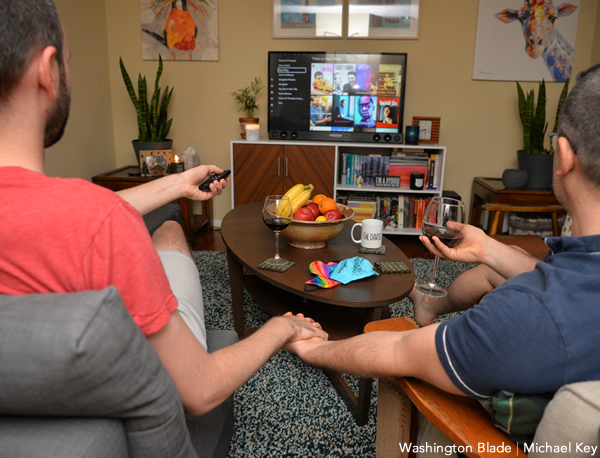
a&e features
D.C. LGBTQ sports bar Pitchers listed for sale
Move follows months of challenges for local businesses in wake of Trump actions
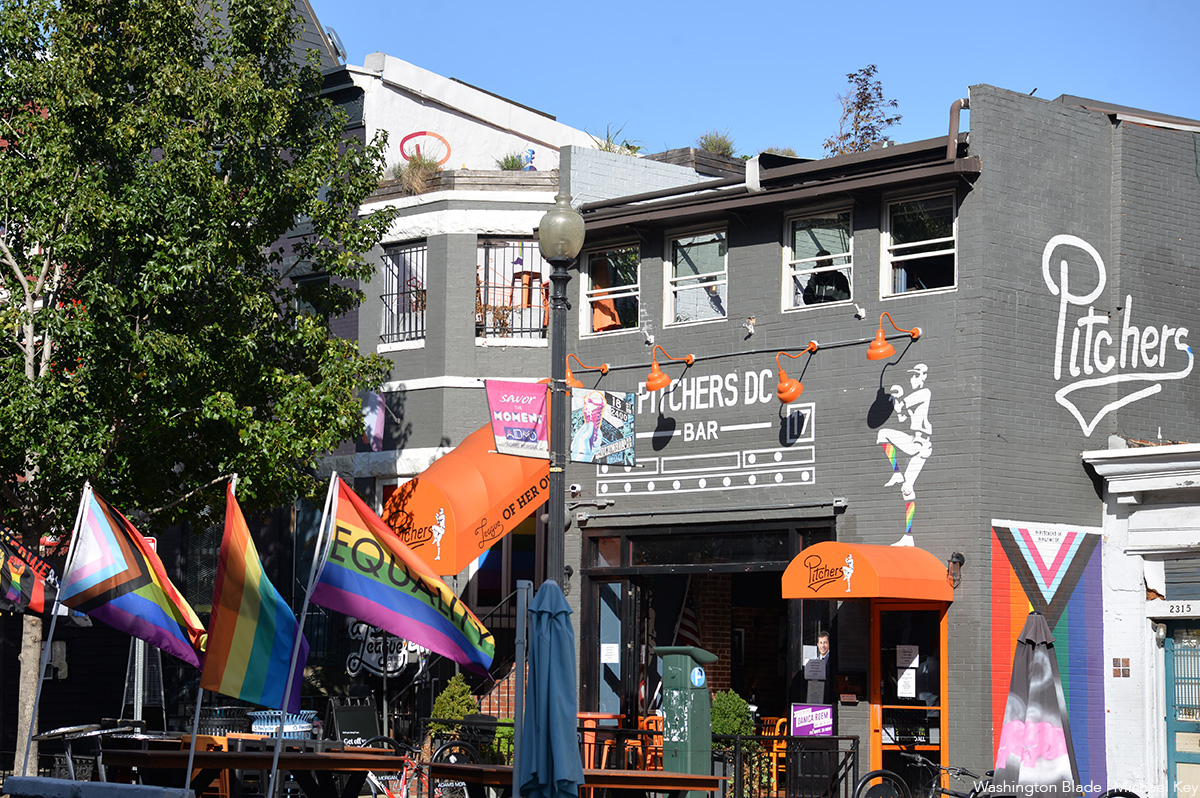
A Santa Monica, Calif.-based commercial real estate company called Zacuto Group has released a 20-page online brochure announcing the sale of the D.C. LGBTQ sports bar Pitchers and its adjoining lesbian bar A League of Her Own.
The brochure does not disclose the sale price, and Pitchers owner David Perruzza told the Washington Blade he prefers to hold off on talking about his plans to sell the business at this time.
He said the sale price will be disclosed to “those who are interested.”
“Matthew Luchs and Matt Ambrose of the Zacuto Group have been selected to exclusively market for sale Pitchers D.C., located at 2317 18th Street, NW in Washington, D.C located in the vibrant and nightlife Adams Morgan neighborhood,” the sales brochure states.
“Since opening its doors in 2018, Pitchers has quickly become the largest and most prominent LGBTQ+ bar in Washington, D.C., serving as a cornerstone of D.C.’s modern queer nightlife scene,” it says, adding, “The 10,000+ SF building designed as a large-scale inclusive LGBTQ+ sports bar and social hub, offering a welcoming environment for the entire community.”
It points out that the Pitchers building, which has two years remaining on its lease and has a five-year renewal option, is a multi-level venue that features five bar areas, “indoor and outdoor seating, and multiple patios, creating a dynamic and flexible layout that supports a wide range of events and high customer volume.”
“Pitchers D.C. is also home to A League of Her Own, the only dedicated lesbian bar in Washington, D.C., further strengthening its role as a vital and inclusive community space at a time when such venues are increasingly rare nationwide,” the brochure says.
Zacuto Group sales agent Luchs, who serves as the company’s senior vice president, did not immediately respond to a phone message left by the Blade seeking further information, including the sale price.
News of Perruzza’s decision to sell Pitchers and A League of Her Own follows his Facebook postings last fall saying Pitchers, like other bars in D.C., was adversely impacted by the Trump administration’s deployment of National Guard soldiers on D.C. streets
In an Oct. 10 Facebook post, Perruzza said he was facing, “probably the worst economy I have seen in a while and everyone in D.C. is dealing with the Trump drama.” He told the Blade in a Nov. 10 interview that Pitchers continued to draw a large customer base, but patrons were not spending as much on drinks.
The Zacuto Group sales brochure says Pitchers currently provides a “rare combination of scale, multiple bars, inclusivity, and established reputation that provides a unique investment opportunity for any buyer seeking a long-term asset with a loyal and consistent customer base,” suggesting that, similar to other D.C. LGBTQ bars, business has returned to normal with less impact from the Trump related issues.
The sales brochure can be accessed here.
a&e features
Alexander Skarsgård describes ‘Pillion’ in 3 words: lube, sweat, leather
Highly anticipated film a refreshingly loving look at Dom-sub life
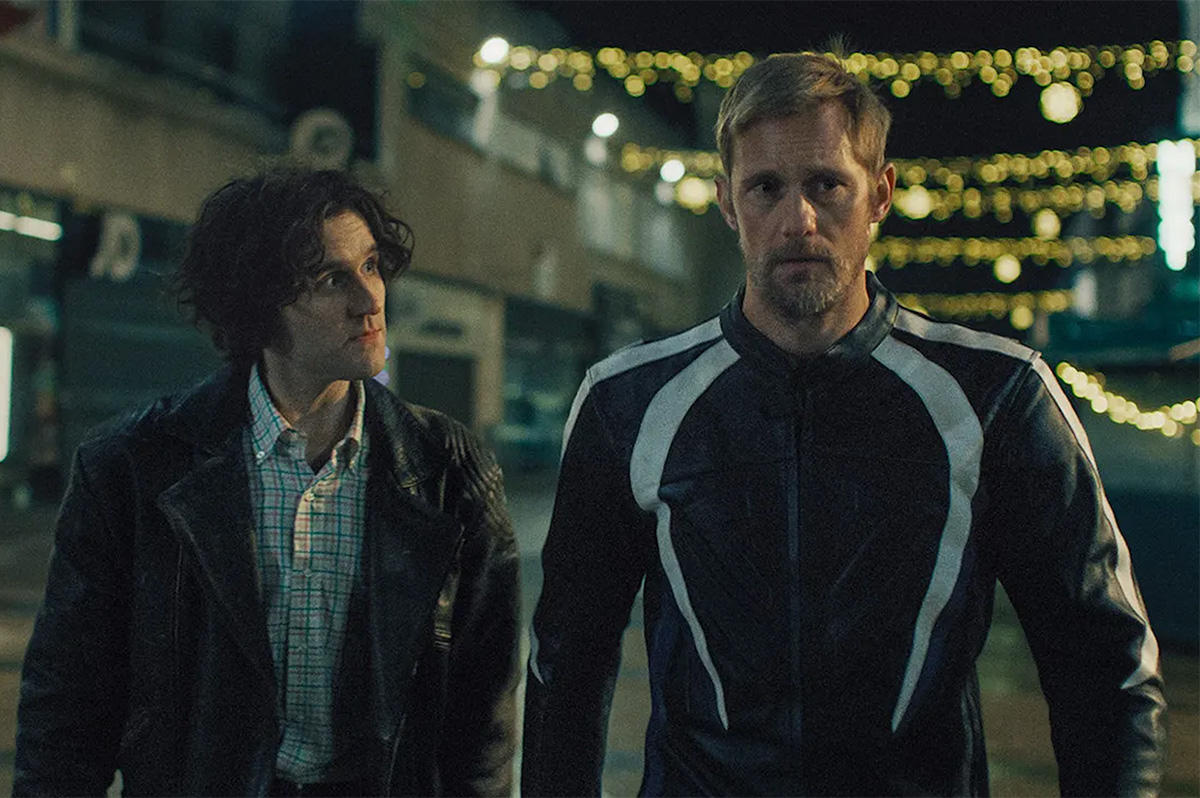
Whether you’ve seen him in popular HBO series like “True Blood,” “Succession,” or “Big Little Lies,” the dynamic Swedish actor Alexander Skarsgård has that smoldering gaze that immediately draws viewers in.
Following in the footsteps of his father Stellan, (who just won the Golden Globe for “Sentimental Value”) the Golden Globe, Emmy, and SAG winner Skarsgård continues to be an actor who is fearless in the roles he takes on.
That courageousness is evident in Skarsgård’s latest film, the BDSM black comedy “Pillion,”which he also executive produces. He plays Ray, the handsome, hyper-dominant leader of a gay bike gang. The film was written and directed by Harry Lighton, and is based on the 2020 novel “Box Hill,” by Adam Mars-Jones.
“This was a small film by a first time filmmaker and it wasn’t financed when I read it,” Skarsgård told journalists at a recent awards news conference. “And I felt that, if I could help in any small way of getting it financed, I wanted to, because I thought it was such an incredible screenplay and I believe in Harry Lighton so much as a filmmaker. And it felt tonally unlike anything I’d ever read. It was such an exciting, surprising read.”
Skarsgård was blown away by the quality of the unconventional script. “When I heard BDSM relationship, biker culture, I expected something very different. I didn’t expect it to have so much sweetness and tenderness and awkwardness.”
For the sex scenes and nudity with co-star, Harry Melling — who excels in his portrayal as Ray’s submissive Colin — Skarsgård talked very early on with Lighton about how he wanted to shoot those scenes, and why they were in the film.
“I often find sex scenes quite boring in movies because a lot of the tension is in the drama leading up to two people hooking up, or several people hooking up, as in our movie. But what I really enjoyed about these scenes — they are all pivotal moments in Colin’s journey and his development. It’s the first time he gets a blowjob. It’s the first time he has sex. It’s the first time he has an orgasm. And these are pivotal moments for him, so they mean a lot. And that made those scenes impactful and important.”
Skarsgård was happy that Lighton’s script didn’t have gratuitous scenes that shock for the sake of just shocking. “I really appreciated that because I find that when this subculture is portrayed, it’s often dangerous and crazy and wild and something like transgressive.”
He continued: “I really love that Harry wanted it to feel real. It can be sexy and intense, but also quite loving and sweet. And you can have an orgy in the woods, rub up against a Sunday roast with the family. And that kind of feels real.”
One of the obstacles Skarsgård had to work with was Ray’s emotionally distant personality.
“Ray is so enigmatic throughout the film and you obviously never find out anything about him, his past. He doesn’t reveal much. He doesn’t expose himself. And that was a challenge to try to make the character interesting, because that could easily feel quite flat…That was something that I thought quite a lot about in pre production…there are no big dramatic shifts in his arc.”
For the film, Lighton consulted the GMBCC, the UK’s largest LGBT+ biker club, attending their annual meetup at which 80 riders were present.
“Working with these guys was extraordinary and it brought so much texture and richness to the film to have them present,” said Skarsgård. “They were incredibly sweet and guiding with us — I can’t imagine making this movie without them. I’d go on a road trip with them anytime.”
Added Skarsgård: “To sum up ‘Pillion’ in three words: lube, sweat, and leather. I hope people will connect with Colin and his journey, and come to understand the nuance and complexity of his bond with Ray.”
This year is shaping up to be a busy one for Skarsgård. “Pillion” premieres in select cities on Feb. 6 and then moves into wide release on Feb. 20. After that for Skarsgård is a role in queer ally Charli XCX’s mockumentary, “The Moment,” which premieres at the Sundance Film Festival. HIs sci-fi comedy series, Apple TV’s “Murderbot,” which he also executive produces, will begin filming its second season. And this weekend, he hosts “Saturday Night Live.”
a&e features
MISTR’s Tristan Schukraft on evolution of HIV prevention
From ACT UP to apps, embracing stigma-free care
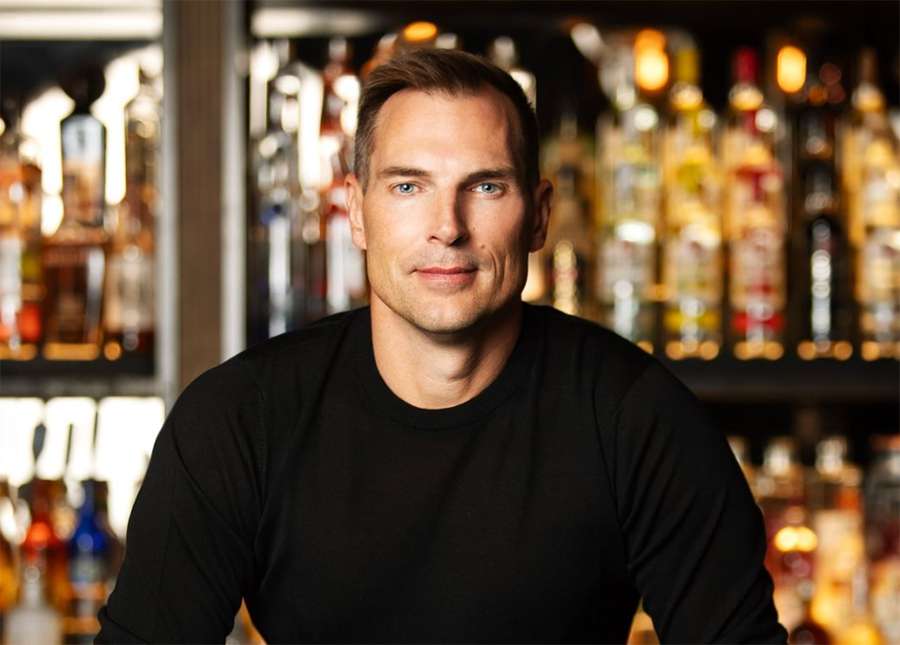
It was not too long ago that an HIV diagnosis was read as a death sentence. In its earlier decades, the HIV/AIDS crisis was synonymous with fear and loss, steeped in stigma. Over recent years, open conversation and science have come together to combat this stigma while proactively paving the way for life-saving treatments and preventive measures like PrEP. Now, in 2026, with discreet and modern platforms that meet people where they’re at in their lives, HIV prevention has evolved from hushed words of warning into something far more sex-positive and accessible. Game-changing services like MISTR are a testament to this shift, showing our community that healthcare doesn’t have to feel clinical or shaming to work. It can be empowering and, dare I say, celebratory.
Few people embody this evolution quite like Tristan Schukraft, founder of MISTR. With one hand in healthcare and the other high-fiving through queer nightlife, Schukraft gets that, from the bar to the bedroom and beyond, prevention happens in person and in real life. His approach has helped turn PrEP, DoxyPEP, and testing into normalized parts of our daily queer life, reaching hundreds of thousands of people across the US.
In our conversation, Schukraft shares candidly about stigma, policy, and why the future of sexual health depends on keeping it real.
BLADE: You have one hand in healthcare and the other in nightlife and queer spaces. Can you share with us how these two spheres impact and inform each other? How do they impact and inform you?
SCHUKRAFT: Honestly, for me, they’ve never been separate. Nightlife and queer spaces are where people meet, date, hook up, fall in love, and make friends. That’s real life. Being in queer spaces all the time keeps me grounded and reminds me who we’re building MISTR for.
BLADE: MISTR markets sexual health in a sex-positive, stigma-free fashion. Can you share with us how you measure the impact of this approach?
SCHUKRAFT: This year, we held the first-ever National PrEP Day. Dua Lipa performed, and Cardi B was there. After the event, Cardi B went on her Instagram live to encourage people to sign up for PrEP.
When you make sexual health stigma-free and sex positive, people talk about it. We see it in how people use the platform. When 700,000 people are willing to sign up, get tested, start PrEP, and add things like DoxyPEP, that tells us we’ve made it feel safe and normal instead of scary or awkward. And then we see it in the results. Since we expanded DoxyPEP, STI positivity among our patients dropped by half.
BLADE: How have you seen the conversation of sexual health in our LGBTQ+ community change in mainstream culture in recent years?
SCHUKRAFT: Ten years ago, nobody was casually talking about PrEP, and if they did, it likely referenced one being a Truvada whore. Now it’s part of the culture. Popstars like Troye Sivan post pictures of their daily PrEP pill on social media. Cardi B goes on Instagram Live telling people to get on PrEP.
For many sexually active gay men, taking PrEP is simply part of the gay experience. For people in more remote areas, it might not be as talked about. Particularly in rural or more conservative places, MISTR can be a life-changing option. No awkward visits to the family doctor or the local pharmacy where everybody knows your business. It’s all done discreetly online and shipped straight to your door.
BLADE: You have publicly argued that cuts to government HIV prevention funding are of high risk. Would you please elaborate for us on what those budget decisions mean on an individual level?
SCHUKRAFT: It means real people fall through the cracks. Someone doesn’t get tested. Someone waits too long to start PrEP. Someone finds out they’re HIV-positive later than they should have. Community clinics will be the hardest hit, especially those in underserved communities. The good news is that MISTR is ready to help people who might lose their access to care. All you need to do is sign up at mistr.com, and it’s totally free with or without insurance.
BLADE: From your (and MISTR’s) perspective, how do these funding cuts threaten ongoing efforts to end the HIV epidemic?
SCHUKRAFT: For the first time, we have all the tools to end HIV. If everybody who is HIV negative is taking PrEP and everyone HIV+ is virally suppressed, we can end all new HIV transmissions in the United States. We have everything we need today. All we need is to get more people on PrEP. Cutting funding risks losing that momentum. Ending HIV requires scale and consistency. Every time funding gets cut, you lose momentum, trust, and infrastructure, and rebuilding that takes years.
HIV transmissions don’t pause because budgets change.
BLADE: In our current climate of decreased federal investment, what role do you feel private healthcare and business should play in sexual health?
SCHUKRAFT: With reports that the current administration is considering cuts to HIV and prevention funding, we face a moment of reckoning. At the same time, some employers are seeking to exclude PrEP and HIV prevention from their coverage on religious freedom grounds. If these challenges succeed, and if federal funding is slashed, the consequences for public health will be devastating. But this is where the private sector must step up to fill the gap, bridge divides, and deliver results.
Businesses have the power and platform to normalize HIV prevention and drive measurable outcomes. At MISTR, we see firsthand what’s possible: since introducing DoxyPEP, STI positivity rates among our patients have been cut in half. But it’s not just about medication. It’s about messaging.
Our sex-positive, stigma-free marketing speaks directly to our community, making sexual health part of everyday life. No awkward doctor visits, no needles, no paperwork — just free online PrEP and STI testing, prescribed by real physicians and delivered to your door. That kind of impact could grow exponentially if more employers embraced this approach and made HIV prevention part of their employee wellness programs.
Employers, this is your call to action. Start by making sure your health plans cover PrEP and DoxyPEP. Partner with platforms like MISTR to give employees private, stigma-free access to care. Offer on-site testing. Talk openly about sexual health, not just during Pride, but every day of the year. This is not political — this is about protecting lives, strengthening communities, and building a healthier, more productive workforce. Because healthy employees aren’t just good for public health — they’re good for business.
When the private sector steps up, outcomes improve. And when businesses align with platforms like MISTR, scaling impact isn’t just possible — it’s happening.
BLADE: Has MISTR experienced any direct effects from these recent shifts in public health funding?
SCHUKRAFT: MISTR’s unique model is totally free for patients with or without insurance, and we don’t cost the government or taxpayers a penny. We are scaling up our efforts to reach people who might be losing their access or care.
BLADE: What would be your message to policymakers who are considering further cuts to HIV/AIDS programs?
SCHUKRAFT: During his first term, President Donald Trump committed unprecedented resources to the Ending the HIV Epidemic initiative here at home. Bipartisan support has shown what’s possible when bold leadership meets smart strategy. To policymakers: I urge you to reconsider any cuts to HIV prevention funding. This is not the time to pull back. It’s the time to push forward. Ending HIV is within reach — but only if government, private industry, and community organizations stand together.
BLADE: What is one perhaps overlooked win from last year that impacted you on a personal level?
SCHUKRAFT: Seeing our STI positivity rate drop by half after expanding DoxyPEP.
BLADE: Looking at the year ahead, what are MISTR’s most significant priorities for sexual health in 2026?
SCHUKRAFT: Expanding access, especially in the South and in communities that still get left out. Rolling out injectable PrEP. And just continuing to make sexual healthcare easier and more normal.





